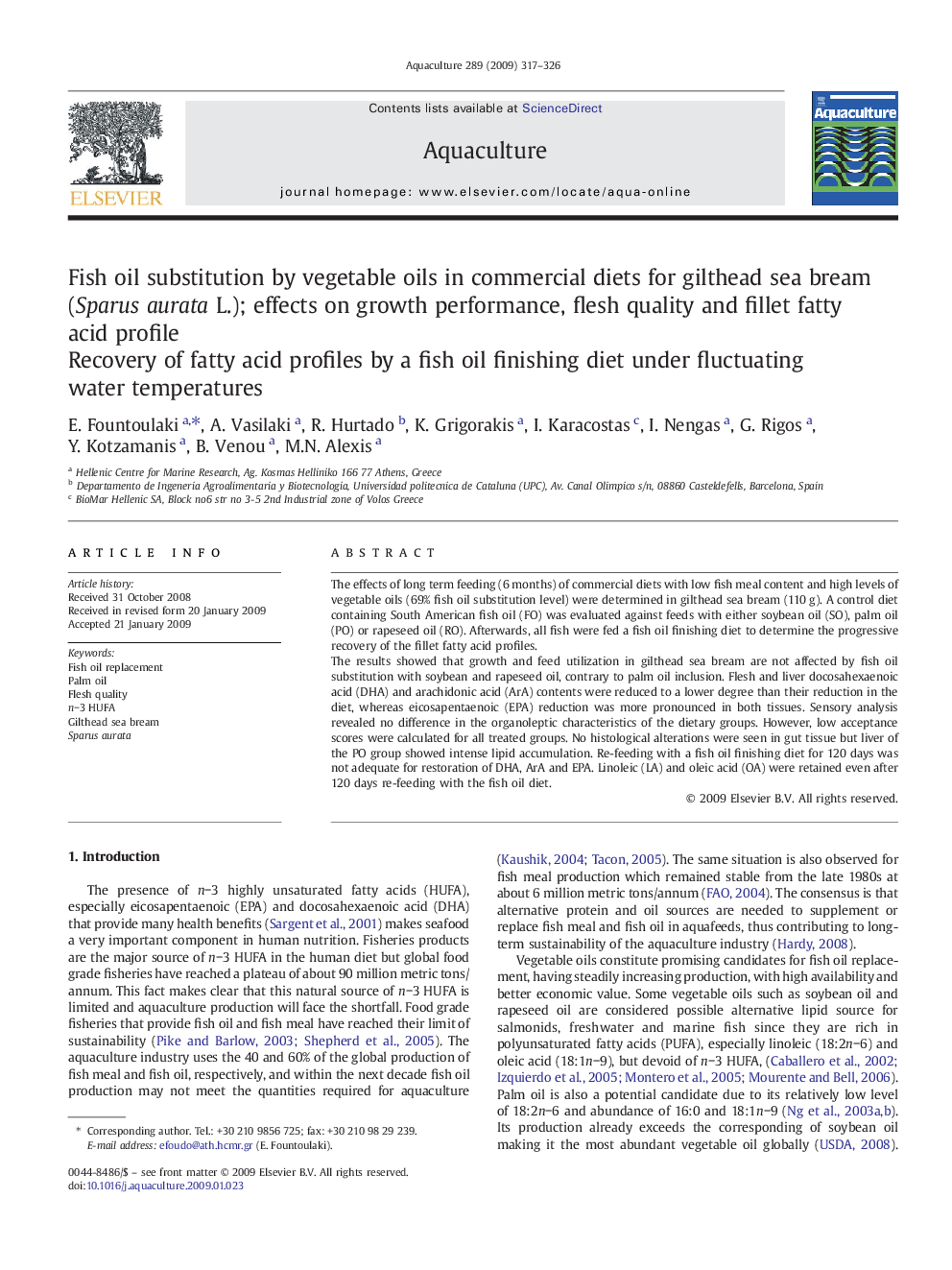| Article ID | Journal | Published Year | Pages | File Type |
|---|---|---|---|---|
| 2424296 | Aquaculture | 2009 | 10 Pages |
The effects of long term feeding (6 months) of commercial diets with low fish meal content and high levels of vegetable oils (69% fish oil substitution level) were determined in gilthead sea bream (110 g). A control diet containing South American fish oil (FO) was evaluated against feeds with either soybean oil (SO), palm oil (PO) or rapeseed oil (RO). Afterwards, all fish were fed a fish oil finishing diet to determine the progressive recovery of the fillet fatty acid profiles.The results showed that growth and feed utilization in gilthead sea bream are not affected by fish oil substitution with soybean and rapeseed oil, contrary to palm oil inclusion. Flesh and liver docosahexaenoic acid (DHA) and arachidonic acid (ArA) contents were reduced to a lower degree than their reduction in the diet, whereas eicosapentaenoic (EPA) reduction was more pronounced in both tissues. Sensory analysis revealed no difference in the organoleptic characteristics of the dietary groups. However, low acceptance scores were calculated for all treated groups. No histological alterations were seen in gut tissue but liver of the PO group showed intense lipid accumulation. Re-feeding with a fish oil finishing diet for 120 days was not adequate for restoration of DHA, ArA and EPA. Linoleic (LA) and oleic acid (OA) were retained even after 120 days re-feeding with the fish oil diet.
